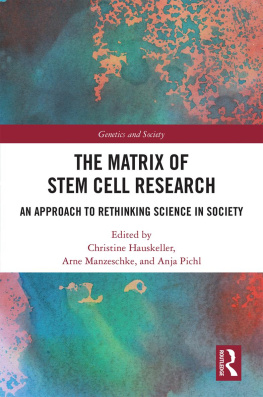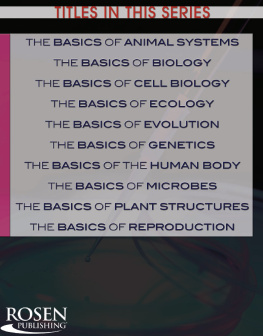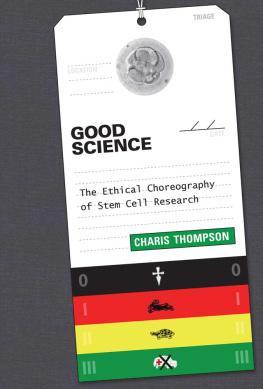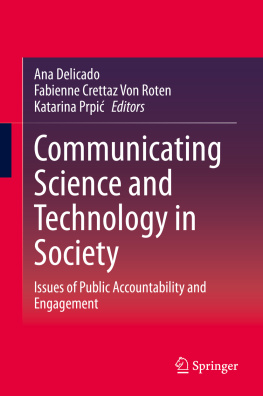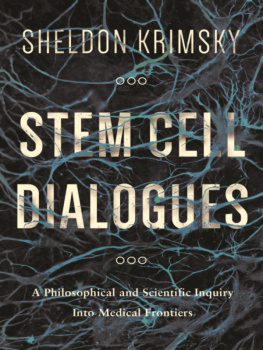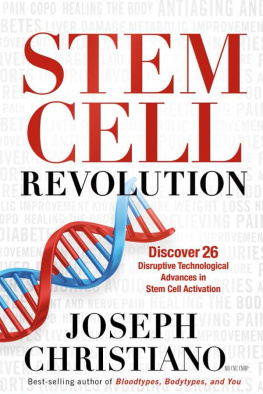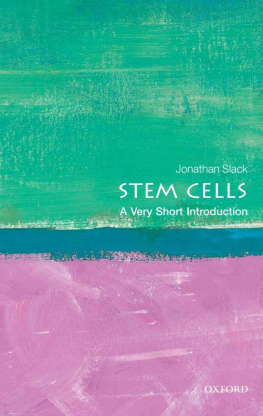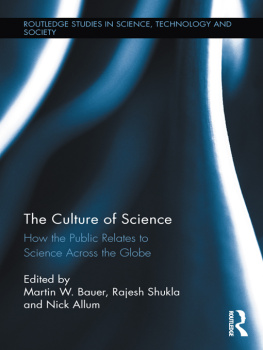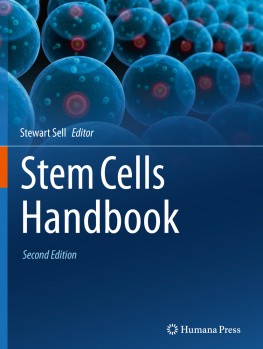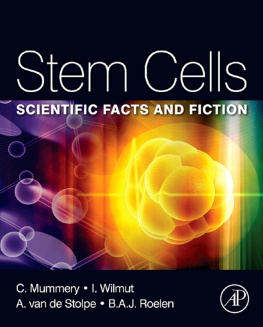A scholarly, and profoundly interdisciplinary, approach to stem cell research that stands the conventional model of scientific development on its head. Far from offering only a secondary and peripheral commentary on more technical matters, questions of ethics, epistemology and socio-technical process are given proper significance. Cells and clinical practices, philosophy and social science flow together in this fascinating and very timely collection. As the editors convincingly argue, the social sciences and humanities do not simply study stem cell research. They also help configure it.
Alan Irwin, Professor in the Department of
Organization, Copenhagen Business School, DenmarkReducing stem cell research to issues of the moral status of embryos is not grasping its dimensions. This excellent interdisciplinary book highlights the central roles epistemic, social, ethical and political factors play in its formation and recent developments. An essential work for all who want to understand this life science in its societal complexity.
Ilhan Ilkili, Professor of Health Sciences, Istanbul
University, and Member of the German Ethics CouncilI think it is a most interesting book, providing new, innovative and very important perspectives on stem cell research/science. It provides a panoramic account of the forces at play in its constitution: disciplines, techniques, specialties, commercial interests, medical concerns, ethical and political factors and more. It does so stressing complementarities and diversity in the dynamics of this wide variety of factors, without privileging one set of factors over another. A non-reductionist, comprehensive understanding of the development of contemporary science, and medical science in particular, requires such a broad grasp.
Rob Hagendijk, Professor of STS, University of
Amsterdam, The NetherlandsThe Matrix of Stem Cell Research
Stem cell research has been a problematic endeavour. For the past twenty years it has attracted moral controversies in both the public and the professional sphere. The research involves not only laboratories, clinics, and people but ethics, industries, jurisprudence, and markets. Today it contributes to the development of new therapies and affects increasingly many social arenas. The matrix approach introduced in this book offers a new understanding of this science in its relation to society. The contributions are multidisciplinary and intersectional, illustrating how agency and influence between science and society go both ways.
Conceptually, this volume presents a situated and reflexive approach for philosophy and sociology of the life sciences. The practices that are part of stem cell research are dispersed, and the concepts that tie them together are tenuous; there are persistent problems with the validation of findings, and the ontology of the stem cell is elusive. The array of applications shapes a growing bioeconomy that is dependent on patient donations of tissues and embryos, consumers, and industrial support. In this volume it is argued that this research now denotes not a specific field but a flexible web of intersecting practices, discourses, and agencies. To capture significant parts of this complex reality, this book presents recent findings from researchers, who have studied in-depth aspects of this matrix of stem cell research.
This volume presents state-of-the-art examinations from senior and junior scholars in disciplines from humanities and laboratory research to various social sciences, highlighting particular normative and epistemological intersections. The book will appeal to scholars as well as wider audiences interested in developments in life science and society interactions. The novel matrix approach and the accessible case studies make this an excellent resource for science and society courses.
Christine Hauskeller is Professor of Philosophy, teaching bioethics, social and feminist philosophy at the University of Exeter, UK. She conducts empirical philosophical studies on the processes of knowledge production in the life sciences and their intersections with different forms of valuation and normativity. Prof. Hauskeller has published widely on stem cell research for the past twenty years and has led many projects on its developments and translation. Appointments to advisory and governance boards include the UK Biotechnology and Biological Sciences Research Councils Biosciences for Society Strategy Advisory Panel and the German Federal Governments Central Ethics Committee Stem Cell Research.
Arne Manzeschke is Professor of Anthropology and Ethics at the Lutheran University of Applied Sciences Nuremberg, Germany; Director of the Institute of Ethics and Anthropology in Health Care; President of Societas Ethica, European Society for Research in Ethics; and vice chairman of the Bavarian Ethics Commission on Preimplantation Genetic Diagnosis. Arne was a member of the Bavarian Research Network Induced Pluripotent Stem Cells (ForIPS). He conducts ethical research in the field of bioethics and the ethics of technology, especially digitalization and the human-machine interaction.
Anja Pichl is a research fellow at the interdisciplinary working group Gentechnology Report at the Berlin-Brandenburg Academy of Sciences (BBAW) and member of the research training group 2073 Integrating Ethics and Epistemology of Scientific Research at Bielefeld University, funded by the Deutsche Forschungsgesellschaft (DFG). Together with Arne Manzeschke, she organized the international summer school Pluripotent stem cells: scientific practice, ethical, legal, and social commentary and was a member of the Bavarian Research Network Induced Pluripotent Stem Cells (ForIPS).
Genetics and Society
Series Editors:Ruth Chadwick, former Director of Cesagene, Cardiff University
John Dupr, Director of Egenis, Exeter University
David Wield, Director of Innogen, Edinburgh University
Steve Yearley, former Director of the Genomics Forum, Edinburgh University.
The books in this series, all based on original research, explore the social, economic and ethical consequences of the new genetic sciences. The series is based in the Cesagene, one of the centres forming the ESRCs Genomics Network (EGN), the largest UK investment in social-science research on the implications of these innovations. With a mix of research monographs, edited collections, textbooks and a major new handbook, the series is a valuable contribution to the social analysis of developing and emergent bio-technologies.
Knowing New Biotechnologies
Social Aspects of Technological Convergence
Edited by Matthias Wienroth and Eugenia Rodrigues
Cybergenetics
Health genetics and new media
Susan Kelly, Anna Harris, Sally Wyatt
Psychiatric Genetics
From Hereditary Madness to Big Biology
Michael Arribas-Ayllon, Andrew Bartlett and Jamie Lewis
The Matrix of Stem Cell Research
An Approach to Rethinking Science in Society
Edited by Christine Hauskeller, Arne Manzeschke, and Anja Pichl
For more information about this series, please visit https://www.routledge.com/Genetics-and-Society/book-series/GANDS.
First published 2020
by Routledge

